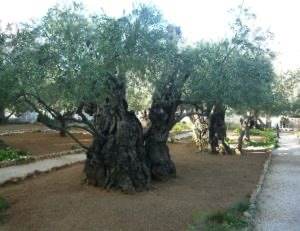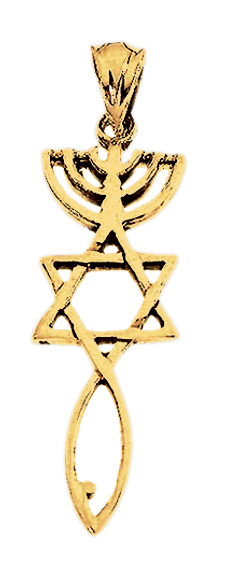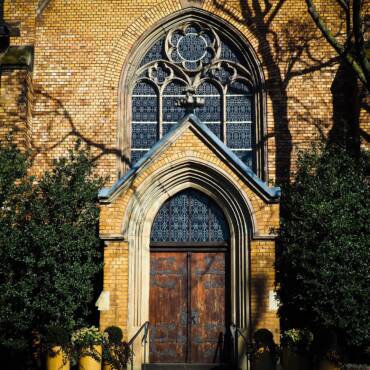The Olive Tree

By Sam Nadler
One of the most misunderstood aspects of Romans 11 is the picture of the olive tree. Yet, it is clear that the symbol indicates unity of Jews and Gentiles in Messiah. The tree itself has some fascinating uses in Jewish history. Every part was used for food, oil and salve; its wood was most favored for its beautiful appearance and durability (1 Kings 6:23-33); its leaves could be used for feeding livestock, its dried leaves, for writing materials.
Olive oil was used in the Temple for the anointing of all sacred articles and to fuel the menorah. Even the olive pits were used for toothaches (Talmud, Avodah Zarah 28). Thus, the tree itself came to symbolize Israel’s service to God. The rabbis were pondering this symbolism even as late as the medieval era:
For just as oil gives forth light, so did the Temple give light to the whole world, as it says, “and nations shall walk at thy light” (Isaiah 60:3).
Our forefathers were accordingly called “A leafy olive tree” because they gave light to all (with their faith) (Midrash Rabbah Exodus 36:1).
The olive tree symbolized Israel’s ministerial life, Israel’s privileges of promise. It spoke of Israel’s calling and service: “The Lord called your name, ‘A green olive tree, beautiful in fruit and form’” (Jeremiah 11:16; Hosea 14:6). In Romans 9:4-5, Paul writes of Israel,
…to whom belongs the adoption as sons and the glory and the covenants and the giving of the torah and the temple service and the promises, whose are the fathers, and from whom is the Messiah according to the flesh, who is over all, God blessed forever. Amen.
Just as this passage connects God’s promise to Israel with Israel’s service to God, Paul uses the illustration of the olive tree to represent Israel’s service. Israel, as the olive tree, is a picture of our present and future service, via the Jewish remnant of present tense believers (Romans 11:5), and future tense, when by faith in Messiah all the natural broken off branches are grafted back, “and thus all Israel will be saved” (Romans 11:26). In the millennial kingdom when Messiah reigns, Israel will once more be the head of nations (Deuteronomy 28:13, Micah 7:16-17), fulfilling their calling before God.
The wild Gentile branches are grafted in for a vital service: of making Israel jealous (for Messiah, Romans 11:11). Thus in Romans 11:16-24, the olive tree is the means of that service with the promised result of that faithful Gentile service in Romans 11:25-27: the national redemption of Israel! In his address to Gentile believers, Paul transitions from Romans 11:15 with a declaration of the impact of national Jewish revival in the coming kingdom, to verse 16 and the olive tree, illustrating how that revival is inevitable if the Gentile believers would just faithfully fulfill their calling. God’s everlasting love for Israel is upon the heart of every faithful Gentile believer, for Paul also wrote in Romans 11:28, “they [Israel] are beloved for the sake of the fathers.” Because they are beloved by God, they will also be loved by Messianic Gentile believers.
Again, he would later write in Romans 15:8, “Messiah has become a servant to the circumcision [Israel] on behalf of the truth of God to confirm the promises given to the fathers.”
By faith, the fathers were first fruits, and, as such, were holy; that is, set apart unto the Lord. Also, their offspring, Israel, had a holy position as Moses noted: “For you are a holy people to the LORD your God” (Deuteronomy 7:6). Thus, Paul continued “if the root is holy, so are the branches.” The tree is Israel, and the root is the promises made to the fathers.
WILD BRANCHES GRAFTED IN
From that principle of the root, which refers to the Messianic promises to the fathers, Paul proceeds to describe the partaking of the root:
But if some of the branches were broken off, and you, being a wild olive, were grafted in among them and became partaker with them of the rich root of the olive tree… (Romans 11:17)
Paul says to the Gentile believers, “and you, being a wild olive, were grafted in among them.”
Note that it is not instead of them, but among them.
Gentile believers, as wild olive branches, are added to the olive tree among the natural believing branches. Gentiles do not replace Jewish people. Partaking of the root means depending on the promises of God, which provide the spiritual nourishment for the soul. It is possible to be saved, but under-nourished: feeding on arrogance (Romans 11:17-18).
The promises to Abraham are certain, so we are certain that God will restore Israel when they come to faith in Yeshua. This certainty in God’s promises is seen in one’s attitude toward Jewish people, the natural branches.
There is a holy call upon the Jewish people to serve God, and the fulfillment of that call comes by faith in Yeshua the Messiah. Jewish people individually respond with faith in Yeshua in order to enjoy the blessings and service that accompany salvation. Faith sets you apart, unbelief sets you aside.
We are to “desire the pure milk of the Word that you may grow in respect to salvation” (1Peter 2:2), and to “seek first the Kingdom of God and His righteousness and all these things will be added unto you” (Matthew 6:33).
May we all be diligent to pray for the salvation of Israel and to seek that Jewish people be restored to the Lord.



